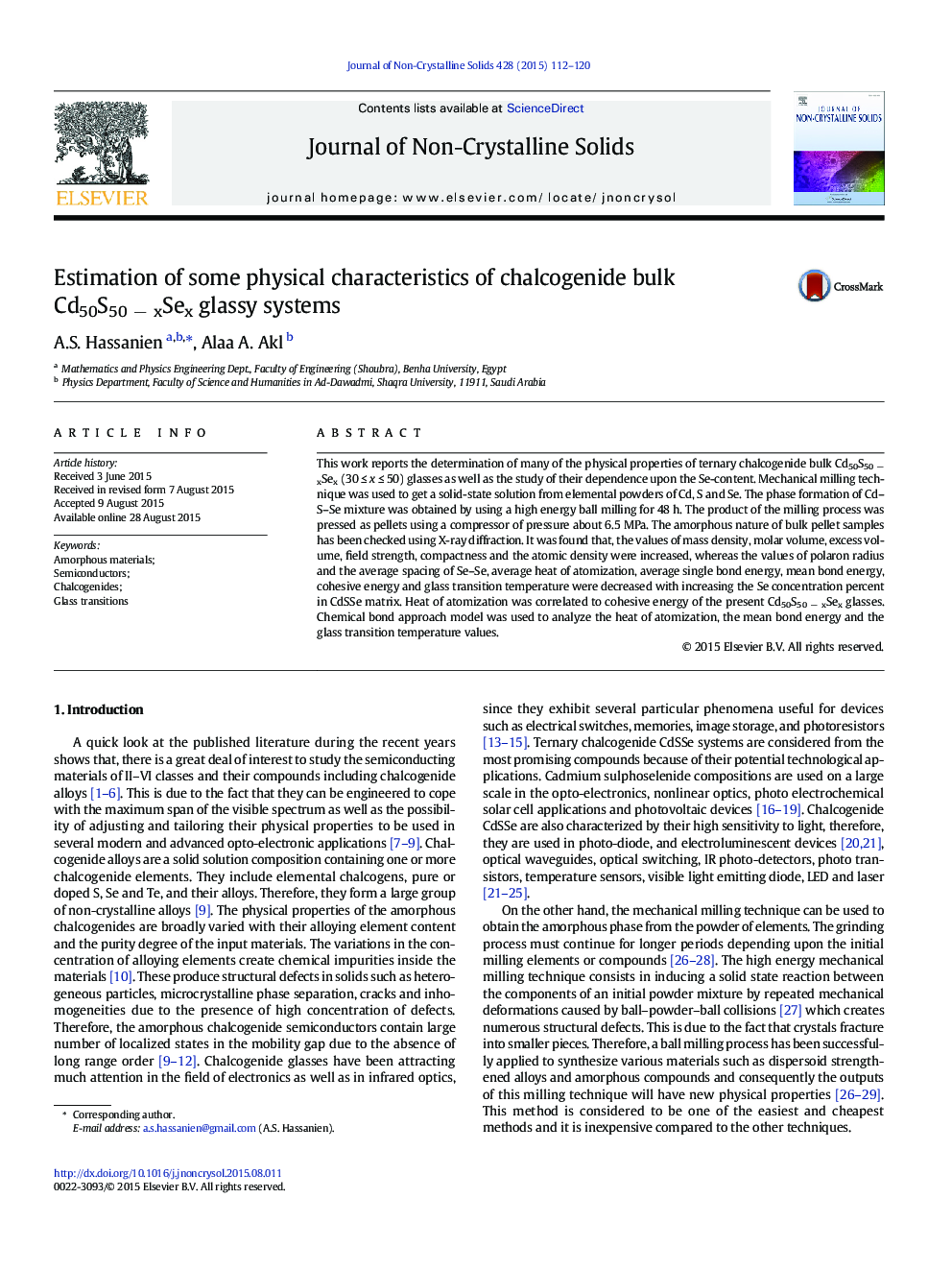| کد مقاله | کد نشریه | سال انتشار | مقاله انگلیسی | نسخه تمام متن |
|---|---|---|---|---|
| 1480571 | 1510416 | 2015 | 9 صفحه PDF | دانلود رایگان |

• Mechanical milling method was used to get glassy samples from powders of Cd, S, and Se.
• Many of the physical properties of the bulk Cd50S50 − xSex glasses have been studied.
• Most of physical properties were dependent on the Se-content in the CdSSe matrix.
• Obtained data were discussed in terms of the chemical bond approach.
• New data were obtained and studied for the glassy CdSSe matrix.
This work reports the determination of many of the physical properties of ternary chalcogenide bulk Cd50S50 − xSex (30 ≤ x ≤ 50) glasses as well as the study of their dependence upon the Se-content. Mechanical milling technique was used to get a solid-state solution from elemental powders of Cd, S and Se. The phase formation of Cd–S–Se mixture was obtained by using a high energy ball milling for 48 h. The product of the milling process was pressed as pellets using a compressor of pressure about 6.5 MPa. The amorphous nature of bulk pellet samples has been checked using X-ray diffraction. It was found that, the values of mass density, molar volume, excess volume, field strength, compactness and the atomic density were increased, whereas the values of polaron radius and the average spacing of Se–Se, average heat of atomization, average single bond energy, mean bond energy, cohesive energy and glass transition temperature were decreased with increasing the Se concentration percent in CdSSe matrix. Heat of atomization was correlated to cohesive energy of the present Cd50S50 − xSex glasses. Chemical bond approach model was used to analyze the heat of atomization, the mean bond energy and the glass transition temperature values.
Journal: Journal of Non-Crystalline Solids - Volume 428, 15 November 2015, Pages 112–120